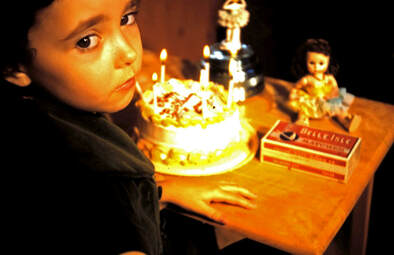 Today is my birthday! I was going to be all low-key about it—just let it slide by without a mention. But when I noticed it would fall on a blog-posting day, I couldn’t resist sharing some birthday thoughts with you. Besides, this one’s a biggie: 70. Just typing that number makes my jaw drop. Me?? 70?? With the dicey health history I had from age 17 on, there were times I doubted I’d ever see this many candles on my cake. Yet as the years piled up, I allowed myself to hope—and then believe—I just might. When I did envision myself at 70, I imagined I’d be living a slowed-down, reflective life, sifting through mementos and old photo albums, processing the past, while practicing meditation and yoga to keep me grounded in the present. What I didn’t imagine was that I’d be so involved in new projects and interests and so jazzed about what’s still ahead. 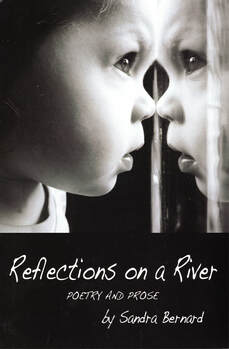 My friend Sandra Bernard recently published this book of poetry and prose and now is working on a new children's book My friend Sandra Bernard recently published this book of poetry and prose and now is working on a new children's book It helps that we live in a community of energetic, engaged people around my age and older who are doing interesting things: playing and recording music, making art, writing and illustrating books, tending gardens, devoting time and talents to worthy causes. (By the way, if you missed my post on Bea Cordle, an inspiration to us all at 90+, be sure to check it out.) 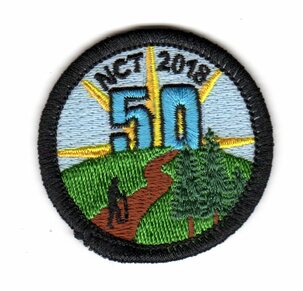 Last year, the stars aligned to make good things happen with my writing and photography. Now, looking forward to the publication of my memoir, Mango Rash, later this year, I’m loving the idea of being a debut author at 70. Toward the end of last year, I also achieved my goal of hiking 50 miles of the North Country Trail, earning that coveted patch for the vest I wrote about in a previous post. This year, I’ve signed up to try for 100 miles (and another patch!), and though sub-zero temperatures and icy trails have set me back lately, I’ve at least made a start toward that goal. Yet in spite of my undampened enthusiasm for projects and passions, this time of life does feel different in some ways from my earlier years, and I do feel the need to take time out for reflection, for putting things in context and looking back as well as forward. In that spirit, Ray and I have been looking through all my photo albums, in order. They start with photos from before I was born—ancestors, my parents’ early lives—and continue up to 2003, when we switched from film to digital and I got tired of sticking pictures on pages. 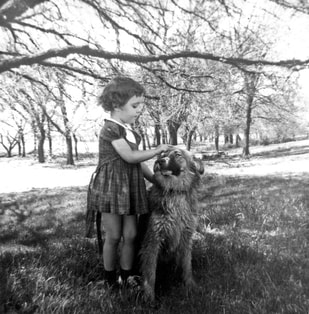 My love of the outdoors has been a theme through the years My love of the outdoors has been a theme through the years Though I’ve dipped into these albums from time to time over the years, I’ve never gone through them this way, one after another, in the span of a few weeks. Doing that now, I notice threads that run through the decades. One is my love of nature, from childhood romps in the woods to more recent treks on nearby trails. Another is appreciation of art, evident in snapshots from settings that range from tony sculpture gardens to funky street fairs. Travels—around Michigan and beyond, by motorcycle, RV, or other conveyance—are another theme. Most meaningful, though, are the faces that keep showing up, year after year, in different situations and places: the friends and family members with whom I’ve shared both celebrations and somber occasions. It's gratifying to realize how many of these people I'm still in touch with and have talked to or exchanged email with in the past week alone. Remembering the roles we’ve played—and continue to play—in one another’s lives gives me a deep sense of connection.  Within the pages of my photo albums, I also find reminders of the losses that come with a long life. So many faces in those photos belong to people who have passed from this life and whose presence I miss. At this time of life, the losses come closer together, and the bonds among those of us who remain grow stronger. When I embarked upon this photographic time trip, I didn’t give much thought to its significance. It was just one of those “someday, I’ll . . . ” things that I felt like doing now. Now, as I pore over pages, I realize what a profound experience it is to look back over a lifetime and contemplate what it's all been about. At a time when it sometimes seems things are falling apart, there's also a sense that everything's coming together. As I anticipate the coming year—and years—it's with a keen awareness that there's really no way of knowing what may come, and no point in either worrying or fantasizing about what-ifs. All I can say for now is, "So far, so good." Share your thoughts about the stage of life you're experiencing.
40 Comments
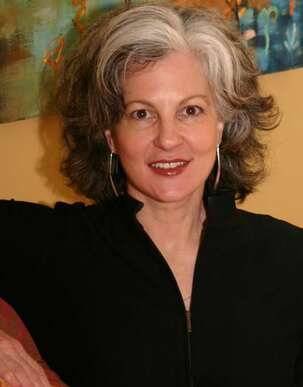 Author Kelly J. Beard Author Kelly J. Beard Today’s visitor, Kelly J. Beard, is an author whose writing I have admired since we met in a master class at the Tucson Festival of Books two years ago. Along with the other members of the class, I was a finalist in the festival’s literary contest, and Kelly won second place for an essay later published as "Os Sacrum" in Santa Ana Review. When I learned that her memoir, An Imperfect Rapture, was headed for publication after winning the Zone 3 Press Creative Nonfiction Book Award, I could hardly wait to read it. The book, which debuted last November, is a remarkable story of finding her way in the world after growing up in poverty, within the strictures of fundamentalist religion. The story is compelling, and the writing masterful. I’m delighted that Kelly has agreed to answer questions today about the writing and publication of An Imperfect Rapture. Writing has been part of your life for a long time, yet your career was practicing employment discrimination law. Are there skills you developed as a lawyer that also serve you well as a writer? 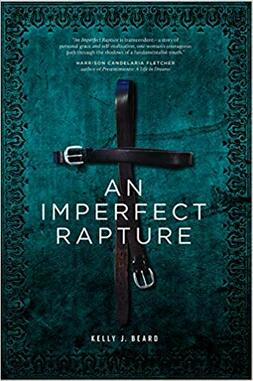 It’s funny, but my latent love for writing probably served my legal work as much as (or more than) my legal work served my writing. A huge part of my litigation practice was writing motions and briefs, basically marshalling the facts and law into a persuasive story. Thinking about this has just reminded me of a legal writing technique I used while writing my memoir, An Imperfect Rapture. As you know, the writer’s ability to infuse her story with insightful reflection is the very essence of memoir. As opposed to the kind of writing approaches one might take in writing biography (“Just the facts, Ma’am”) or fiction (“Show don’t tell”), memoir’s marrow requires a measure of telling beyond the facts.  As I struggled to find ways to add reflective texture to my story I sometimes used a loose version of a writing technique taught in law school called the “IRAC” method. In short, the IRAC method requires the writer to identify the issue (describe the facts) and then to analyze those facts in light of the law. The analysis part of the IRAC is really quite similar to the memoirist’s reflection. But to get back to your question, the real skill I developed as a lawyer that served me as a writer was self-discipline; the day-to-day commitment to sit at the computer (or wherever) and work on something you know won’t be finished that day (or year, or maybe even decade) because you believe in what you’re doing. That’s the real work of both practices. How deeply did you have to dig to bring forth the memories you recount in An Imperfect Rapture? Were they close to the surface or submerged? What helped you access those memories? I started writing An Imperfect Rapture in my early-to-mid 50s, so the events I was writing about were anywhere from 30 to 50 years old. Like a lot of people—particularly, I suspect, people who had difficult early experiences—I submerged so much of those early years under layers of busy-ness, mostly trying to be a decent mom and lawyer. I hadn’t really thought about writing memoir. I used to write poetry and short fiction, and had started a couple of novels before practicing law. So my thought was that I’d write a novel when I finished practicing law. All my life I’ve struggled with depression, but for most of my “mom” and “lawyer” years it was easy to stay distracted. I think I was also invested in trying to give my daughter a different experience than I had, so I never talked to her about the events in my memoir. She hadn’t lived in the shame of poverty or experienced the confusion of wildly erratic and unstable parenting, or the violence of their religious faith. When she left home, I fell into one of the worst depressions I’d ever had. And that’s saying something. I finally found a brilliant therapist who is probably responsible both for saving my life right then and for getting me to write the memoir. I remember sitting in his office one day weeping over the distance between my daughter and me. My expectations of her and our relationship was unhealthy, I realize now, but at the time I felt utterly abandoned by her and betrayed by life. I told the therapist that I was thinking about writing to her—telling her how much I loved her, how irrelevant I felt in her life, how sad I was. I expected him to say, “Good idea, even if you don’t send the letter.” Instead, he looked at me and asked, “What doesn’t she know about any of that? What could you tell her that she doesn’t already know?” And that’s the book, really. In the book's acknowledgements, you mention “that first scary thought, maybe I'll write a memoir . . . ” What scared you about the prospect?  The scariest part was knowing I’d have to reveal this whole other life, this person and past no one—not my friends or colleagues or even my own daughter—knew about. I also have a pretty fractured birth-family. Only one of my siblings still talks to me; two haven’t spoken to me for decades. Although my father died in 1996, my mom is still alive, and I didn’t want to hurt her. It felt a little like deciding to pour gas on the charred remains of our family. How did you move past that fear enough to write your story? For one thing, I pretended I was writing for the very limited audience of my daughter and perhaps any child she might have, and that they would only read it after I was gone. I focused on telling the truth with as much beauty (skill) as I could muster. And I figured I could keep it from my mom. She’s 90 and doesn’t use the internet. Also, the more I wrote, the more committed I became to that Aristotelean ideal of truth and beauty. That ideal was hugely important in helping me work past any lingering sense of grievance and find a way to be honest with the reader about these deeply complicated people and experiences. Take us through your journey from initial idea to publication. How long did you spend writing and revising the book? What avenues did you explore in pursuing publication? How did you come to be published by Zone 3 Press?  As I mentioned, the initial idea occurred to me shortly after my daughter started college in 2010. I was still practicing law, but I had my own practice and was able to scale back. I read somewhere that Virginia Woolf wrote two hours a day, always in the morning. She claimed not to have enough creative steam to carry her past the two-hour mark. I took her cue and wrote for two hours each morning (except Sundays—some things never leave us) and always before work or even reading email. The few times I tried to change this schedule either by working first or peeking at email before writing, I lost my creative energy for the day. After a few years of working on it, I thought I had a pretty solid manuscript. In the summer of 2013, I attended a Master Class with Emily Rapp Black in Taos. The manuscript was 450 pages long. Emily critiqued the entire manuscript (as did the other workshop participants). Emily’s critique was brilliant, and I spent the following year working on the areas she suggested. 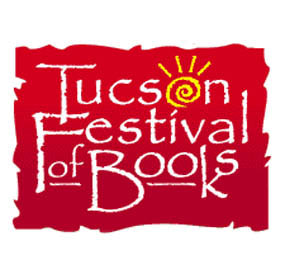 Then, in the summer of 2014, I attended a workshop in Tucson. It was affiliated with the Tucson Book Festival and the workshop leader was Rigoberto Gonzalez. It wasn’t a Master Class, so we submitted short (20-page) essays rather than entire manuscripts. I submitted a section of the manuscript. Again, here I was with a truly amazing teacher giving me advice I couldn’t have come up with on my own. As a consequence of those two workshop experiences, I figured out I was not one of those (lucky!) people who can write themselves into the craft. I needed a good teacher (or teachers) or I’d be stuck—never really knowing what or why parts of the manuscript weren’t working. That’s when I decided to go into an MFA (Master of Fine Arts) program. Please hear me when I tell you that I realize some of the most talented writers I know (and have read) didn’t go through MFA programs. I don’t think they’re for everyone. But at that point (I was moving into my later 50s), I didn’t think I would learn the craft sufficiently without significant guidance. 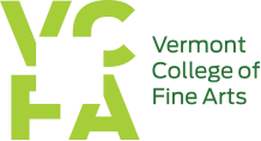 That winter, I entered the Vermont College of Fine Arts low-residency MFA program. It was a pretty mixed bag, and while I had two fantastic advisors during my tenure there, I also had a couple that weren’t worth the tuition. But I went to tons of craft talks, studied work I might not have found otherwise, and worked diligently at learning the craft and revising An Imperfect Rapture. I ended up submitting the manuscript—essentially re-written and 100 pages “lighter” than what I’d submitted to Emily three years earlier—for my creative thesis in 2016. At that point I thought, OK, this guy is ready to go. I started querying agents and submitting to a few contests. I don’t know how many agents I queried, maybe 30 or 40, but no one was interested. I think to a certain extent the gatekeepers—the literary intelligentsia, if you will—have a bit of a herd mentality. And, of course, it’s all about making money in that world, so increasingly agents make “safe” choices, a fact evident by walking into any bookstore and seeing how the genre has been cannibalized by celebrity memoirs. 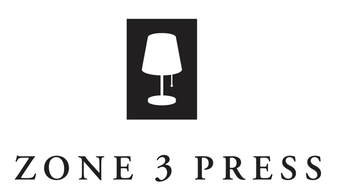 So I started sending queries to independent and university publishers and also entering a few contests that were being judged by people whose work I loved. I don’t know how many contests I entered (not that many because it costs money to enter and it too often felt like a boondoggle), but An Imperfect Rapture was a finalist in two other contests before I submitted it to Zone 3 Press. Janisse Ray was the judge that year (2017). I’d read several of Ray’s books, and she was one of my idols. Her work is not only breathtaking, but important. By Important I mean necessary. So, when I saw the ad for the Zone 3 Press Creative Nonfiction Book Award, and saw Ray was judging, I knew I wanted to enter. Actually, I almost didn’t. By the time I saw the ad, the deadline was only a week or so away, and there was a page limit of 300 pages. I’d spent two years largely re-writing the manuscript, but also cutting, culling, and winnowing it down from 450 to about 385 pages. The thought of getting it from 385 to 300 pages seemed impossible. Let alone doing so in such a short period of time. But I did. I killed way more darlings than I would have dreamed possible. So there it is. Ray did love it! The darlings weren’t missed. Zone 3 Press is the press of my dreams. But that’s the contest I almost skipped. What parts of the book were most challenging to write? Were there parts you enjoyed writing? 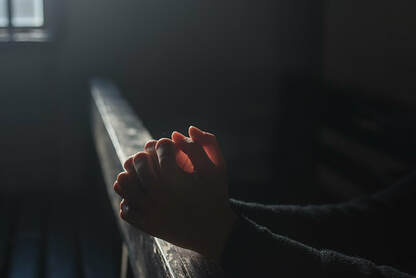 The hardest part to write, by far, was the end. Mostly because I didn’t know what I was writing about, and I kept trying out possible ends. As you know, the story in An Imperfect Rapture ends when I’m in my mid-twenties. I tried ending at later dates and with later events closing the final scene. I remember that in the third semester of my MFA I was trying to work out the ending, and not to sound all woo-woo or anything, but in addition to writing, I was spending a lot of time practicing yoga, meditating and praying. And at one point while trying to write the ending, I went into a kind of fugue state and wrote the end scenes. (It was the one and only time this has ever happened to me while writing, so I’m not sure I’d want to rely on it as a strategy for finding my way to an ending, but who knows?) I subsequently edited the heck of the rest of the manuscript, but the ending is the only part of the manuscript I could never really edit. It put itself on the page, and I had to leave it alone. One of the cover blurbs calls An Imperfect Rapture more of a "coming to terms" story than a coming of age story. Do you agree with that description? What does that mean to you?  Oh, I absolutely agree with that description. I couldn’t pin down what the difference is with any precision, but “coming if age” conjures the idea of mastery: “I came, I saw, I conquered,” as opposed to the idea of “I came, I saw, I understood.” I understood. But I’m not sure I conquered. You write with honesty about living in poverty. What do you think people who've never lived in poverty don't understand about people who are struggling to get by? The shame of being poor. And the rage. I read somewhere that the average age of death for men who work as coal miners in Appalachia is 46. There’s a reason for that. Poor people are dispensable in this system, and they know it. At a few key times in your life, someone challenged you to be more than you thought you could be. At other times, people told you that you weren't good enough. Both experiences seem to have motivated you. How did that balance play out in your life? That’s the mystery, isn’t it? When I was writing An Imperfect Rapture, I spent a lot of time wondering what my life would have been like if just one or two more kind, empathic people had shown up to mirror someone to me I could love and root for, or if one or two more tough-love kind of people had shown up to mirror someone to me I could admire. So, I’m not dead. I had the life I had, good and bad, so at the end of it all, I feel like it was exactly what it was meant to be. One more kind person (“angel”) or one more challenger (“worthy adversary”) and I might be—who knows, on the Supreme Court? The author of ten or fifteen important books? But one fewer kind person or challenger and I wouldn’t be here, I suspect. What's next for you as an author? 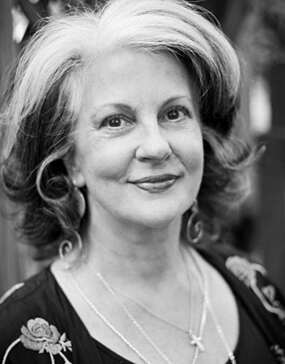 Right now I’m trying to give An Imperfect Rapture a chance to breathe. Maybe all authors feel like this, but I can’t imagine writing anything I love as much as this book. So, I’m trying not to pressure myself about that. Some readers have asked if I’ll be writing a sequel (a lot of years between 24 and 60), but right now, I really don’t know. I’ve written a few essays I like, but the essay form feels a little constraining to me. I’m moving toward another memoir, I’m pretty sure, but I just don’t know what slice of life is calling me to investigate it yet. |
Written from the heart,
from the heart of the woods Read the introduction to HeartWood here.
Available now!Author
Nan Sanders Pokerwinski, a former journalist, writes memoir and personal essays, makes collages and likes to play outside. She lives in West Michigan with her husband, Ray. Archives
April 2022
Categories
All
|
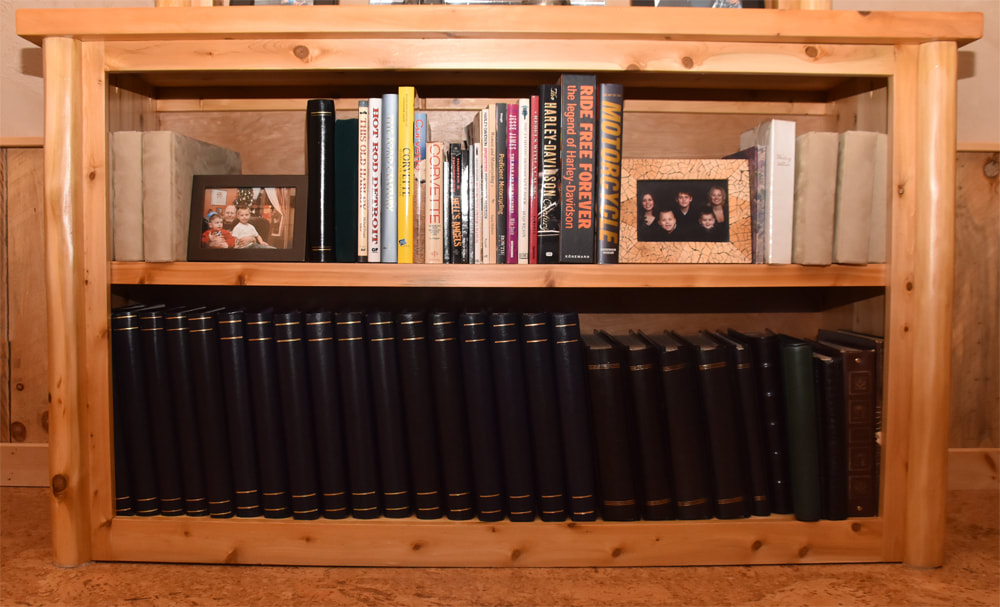
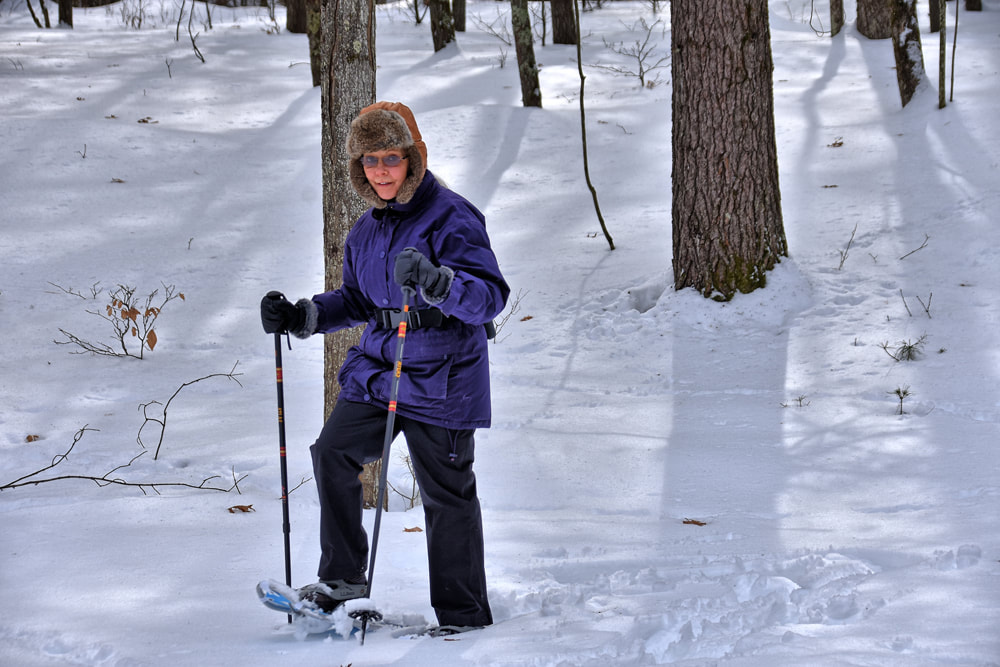
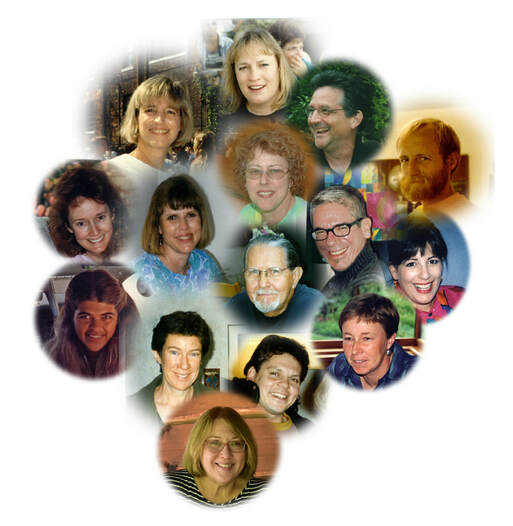


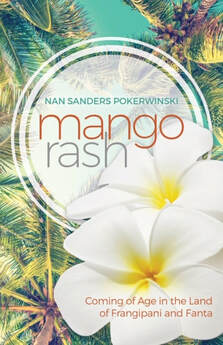
 RSS Feed
RSS Feed